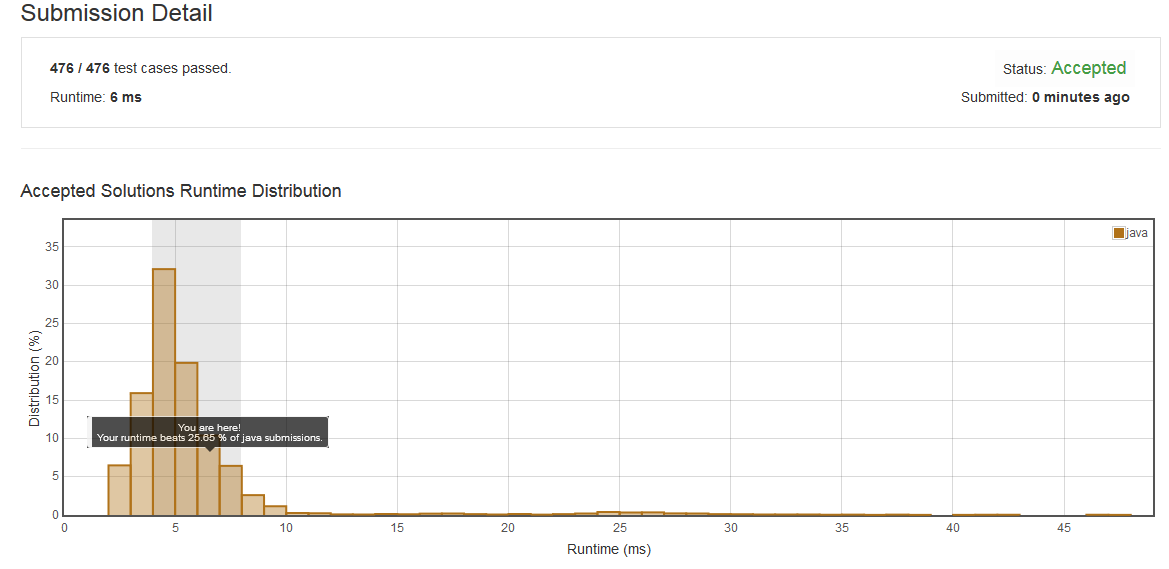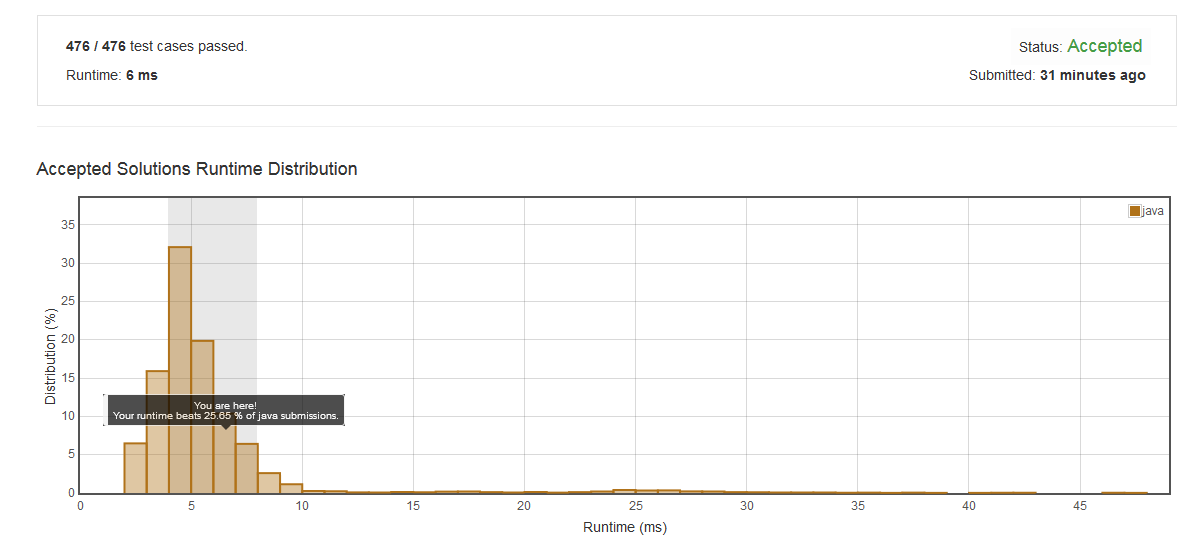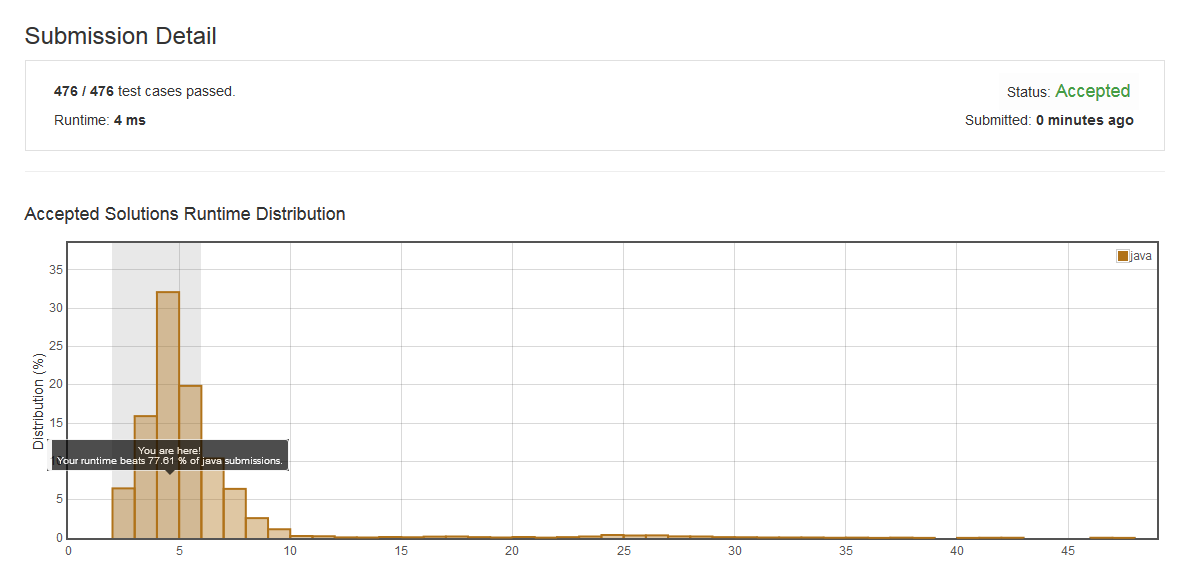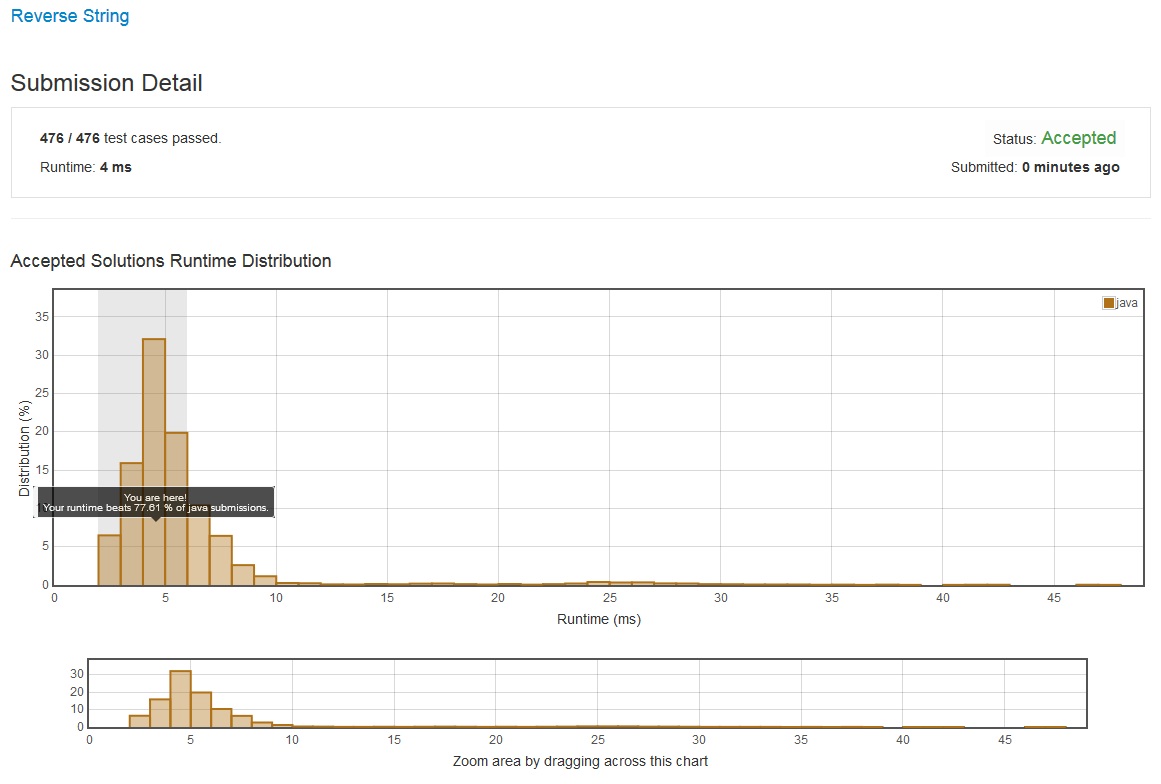problem:
Write a function that takes a string as input and returns the string reversed. Example: Given s = "hello", return "olleh".
first:
class Solution { public String reverseString(String s) { StringBuilder reversed = new StringBuilder(); char[] array = s.toCharArray(); for(int i=array.length-1;0<=i;i--){ reversed.append(array[i]); } return reversed.toString(); } }
result:

second try:
class Solution { public String reverseString(String s) { StringBuffer reversed = new StringBuffer(); char[] array = s.toCharArray(); for(int i=array.length-1;0<=i;i--){ reversed.append(array[i]); } return reversed.toString(); } }
result:

换成StringBuffer,效果竟然一样??
3nd:
class Solution { public String reverseString(String s) { char[] array = s.toCharArray(); char[] reversed = new char[array.length]; for(int i=array.length-1;0<=i;i--){ reversed[array.length-1-i]=array[i]; } return new String(reversed); } }
result:

可见,用数组代替string和StringBuffer或StringBuilder会更快。
4th:
class Solution { public String reverseString(String s) { StringBuilder sb = new StringBuilder(s); sb.reverse(); return sb.toString(); } }
result:

conclusion:
https://stackoverflow.com/questions/355089/difference-between-stringbuilder-and-stringbuffer
根据上述链接, StringBuilder因为没有同步,会比StringBuffer更快。但为什么在leetCode上两者速度一样?莫非LeetCode做了默认优化?
另外,第四种写法,直接用了StringBuilder的reverse方法,写起来更简单。